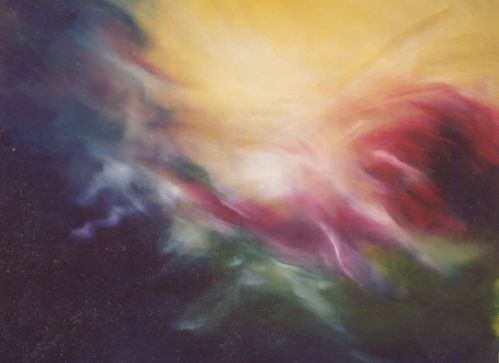
There once was a man who ran a small drug
dispensary. It was rather a private and small business with low overheads. He
had no actual rent to pay for as he worked out from either his home, or as was
preferred, he would go out to the people person-to-person and deliver what was
required.
His scales were electronic and very
portable. He had an assortment of plastic bags and a calculator, a little
change purse, a discreet satchel to place it all in, alongside the substance
which was already divided into neat and accurate packages.
Although
the turnover was considerable, and his mark-up and profits brought in ten times
the average wage, this travelling apothecary of a man had difficulty in saving
much, if not all, for his monies went to pay the cost of his gambling.
When
he was found to have died from a premature death (through violent means) the
authorities had many choices as to who may have been the murderer :
a) his supplier
b) one of his customers
c) his wife
d) his brother (to whom he owed money)
e ) his broker (of the street variety -
money lender)
f) his mistress
g) one of his gambling debtors
or
h) a ‘hit-man’ employed by one of the above
As it turned out he had actually killed
himself.
Shortly after the funeral he was called
into that part of death which incorporates the wastelands of earthly living.
Here he did experience the many insanities which he himself had promulgated
whilst he was alive. Every nerve-ending which had been excommunicated from some
other's body in obeisance to the asphyxiating chemical dust which drew their
life, their passion, their comprehension and their selfhood right out from
them; every misplaced pain, every angel’s tear, every struggling mother, gagged
word and strangled thought; every corrupted virtue - poked at him with the
needle of the after-death message.
There is no sleep in this condition. There is no reprieve, no rest, no pause between the first message and the last. Our apothecary had to make account for that which he had had part in being cause to; and it was terrible.
Much
later, when regret was imprinted upon his sorry, sorry, self he came to that
place where one collects all of the investments they have begun in their
lifetime comprising their great hopes, huge enthusiasms and life-filled
enterprises. These are those things which require an honest self and a true
heart, yet originate also in the kernel of who we most readily and ordinarily
are.
There he found very little awaiting him. He discovered that he had by and large forgotten himself in such false charities as he had been most given to. All of the folk on the authority’s check-list (with the exception of the possible hit-man) had demanded of this man his time, his thought, his obedience, even his congeniality. He had put them all before any real sense of true wanting. He had assumed that second best (meaning: second to his own true self ) was the way that one lived life. It had not occurred to him to leave the pattern which was feeding itself and not his soul. And yet sadly, not one recipient amongst them had truly cared for him: for his identity, for his desires, for his life and what it could have stood for.
He may have appeared as an icon of selfishness, when viewed from the perspective of his trade, but in truth he was a weak man who had tried very hard (in all of the wrong ways) to do what was required of him. He suffered for being wrong. And he was wrong because he had not the ability to confer with his true self. Had he been able to refer to that protective inner wisdom which knows both consequence and worthwhile desire, he would have corrected many decisions which later impelled him to keep being answerable for.
There he found very little awaiting him. He discovered that he had by and large forgotten himself in such false charities as he had been most given to. All of the folk on the authority’s check-list (with the exception of the possible hit-man) had demanded of this man his time, his thought, his obedience, even his congeniality. He had put them all before any real sense of true wanting. He had assumed that second best (meaning: second to his own true self ) was the way that one lived life. It had not occurred to him to leave the pattern which was feeding itself and not his soul. And yet sadly, not one recipient amongst them had truly cared for him: for his identity, for his desires, for his life and what it could have stood for.
He may have appeared as an icon of selfishness, when viewed from the perspective of his trade, but in truth he was a weak man who had tried very hard (in all of the wrong ways) to do what was required of him. He suffered for being wrong. And he was wrong because he had not the ability to confer with his true self. Had he been able to refer to that protective inner wisdom which knows both consequence and worthwhile desire, he would have corrected many decisions which later impelled him to keep being answerable for.
Fundamentally, the argument is that an individual would not instinctively go against himself and cause himself harm as first preference. Therefore, if we but knew our true hearts we would not be capable of sin or a disabling misplaced self-sacrifice such as our chemist found himself given to. If we tumble out of grace into this democracy of wills then we are but conceived in another one’s dreams, yet shall not and cannot be made by them.


No comments:
Post a Comment